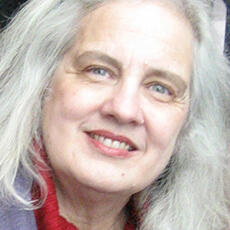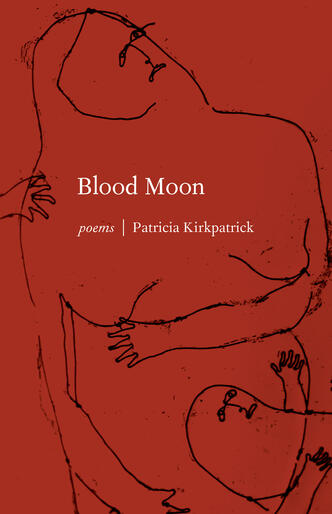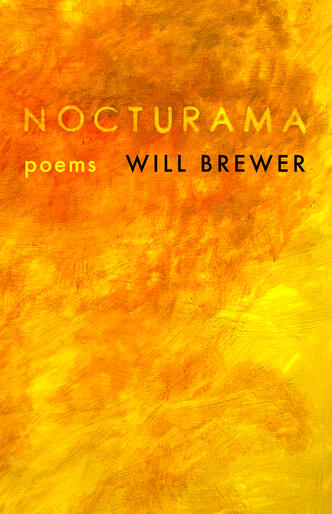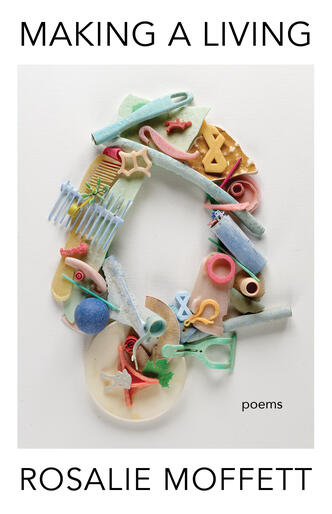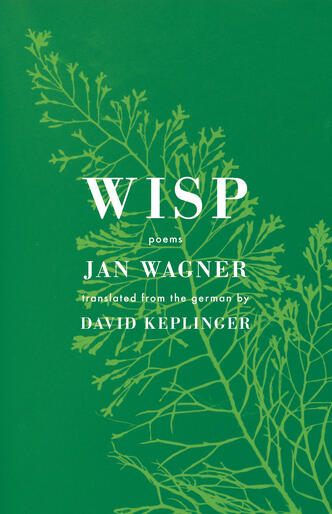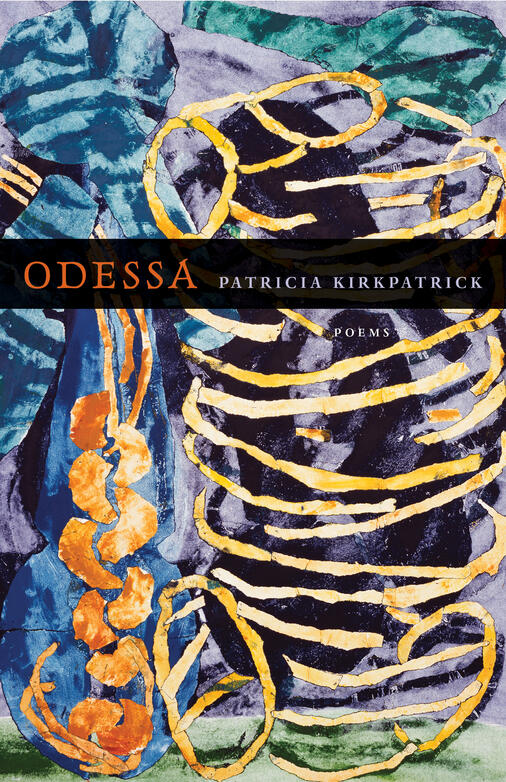
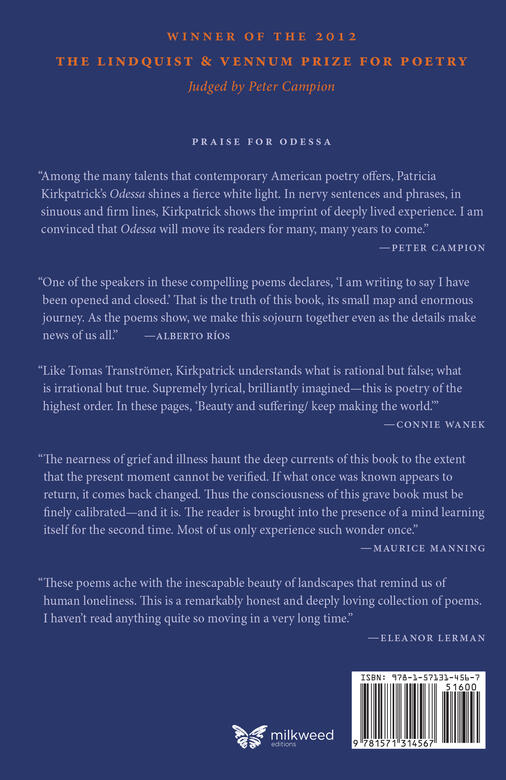
Odessa
Winner of the Minnesota Book Award
A grim prognosis, brain cancer, leaves the speaker in Patricia Kirkpatrick’s Odessa—selected by Peter Campion as the winner of the 2012 Lindquist & Vennum Prize for Poetry—fighting for her life.
The tumor presses against her amygdalae, the “emotional core of the self,” central to the process of memory. And so a dreamlike reality emerges from these poems, emotionally charged but void of sentimentality. Kirkpatrick’s Odessa, “roof of the underworld,” is a refuge at once real and imagined, resembling simultaneously the Midwestern prairie and a god-inhabited city. We see a field filled with unidentifiable birds and the unknowable. A post-surgery body that can be “broken / like a piece of bread.” Ceres and Hades locked in a custody battle for Persephone—and Persephone’s fruit, “the color of bloodstain.”
Ghostly, lyrical, and bearing shades of classical heroism, Odessa delivers a personal narrative of stunning dimension.
